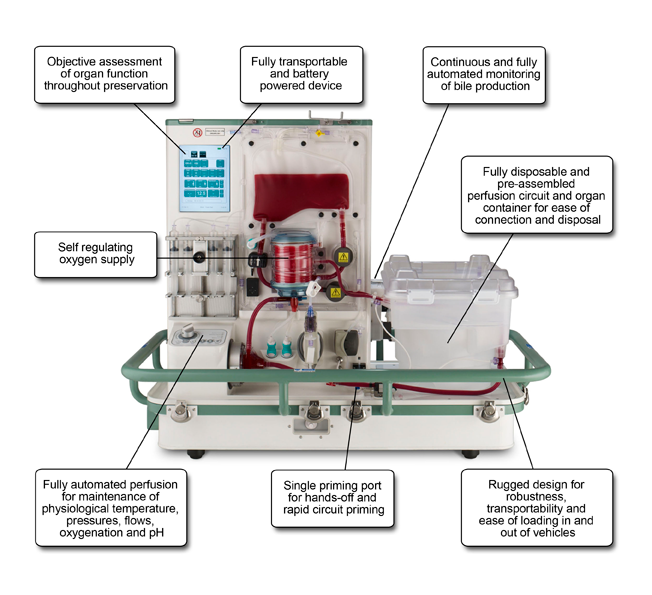Contact
News & Support
Patient Info
Oxford Transplant Centre
About OTF
Conventional cold preservation involves storage of the liver at 4°C, using a non-physiological perfusion solution that aims to minimise liver degradation. By contrast, warm preservation seeks to re-create an environment that mimics the human body by continuously perfusing at physiological pressures and flows with oxygen-carrying red cells at 37°C and providing nutrition. The liver is therefore functional during the preservation period, producing bile, metabolizing glucose and maintaining a physiological pH. This enables objective assessment of organ performance prior to transplant, extended preservation times.
OrganOx® limited is a medical device company with a mission to increase the quality and supply of organs for transplantation.
OrganOx’s first product, the OrganOx metra® enables the repair, preservation and viability assessment of livers prior to transplantation, for up to 24 hours using normothermic oxygenated blood.

Links:
OrganOx Website



Conventional cold preservation involves storage of the liver at 4°C, using a non-physiological perfusion solution that aims to minimise liver degradation. By contrast, warm preservation seeks to re-create an environment that mimics the human body by continuously perfusing at physiological pressures and flows with oxygen-carrying red cells at 37°C and providing nutrition. The liver is therefore functional during the preservation period, producing bile, metabolizing glucose and maintaining a physiological pH. This enables objective assessment of organ performance prior to transplant, extended preservation times.
OrganOx® limited is a medical device company with a mission to increase the quality and supply of organs for transplantation.
OrganOx’s first product, the OrganOx metra® enables the repair, preservation and viability assessment of livers prior to transplantation, for up to 24 hours using normothermic oxygenated blood.


